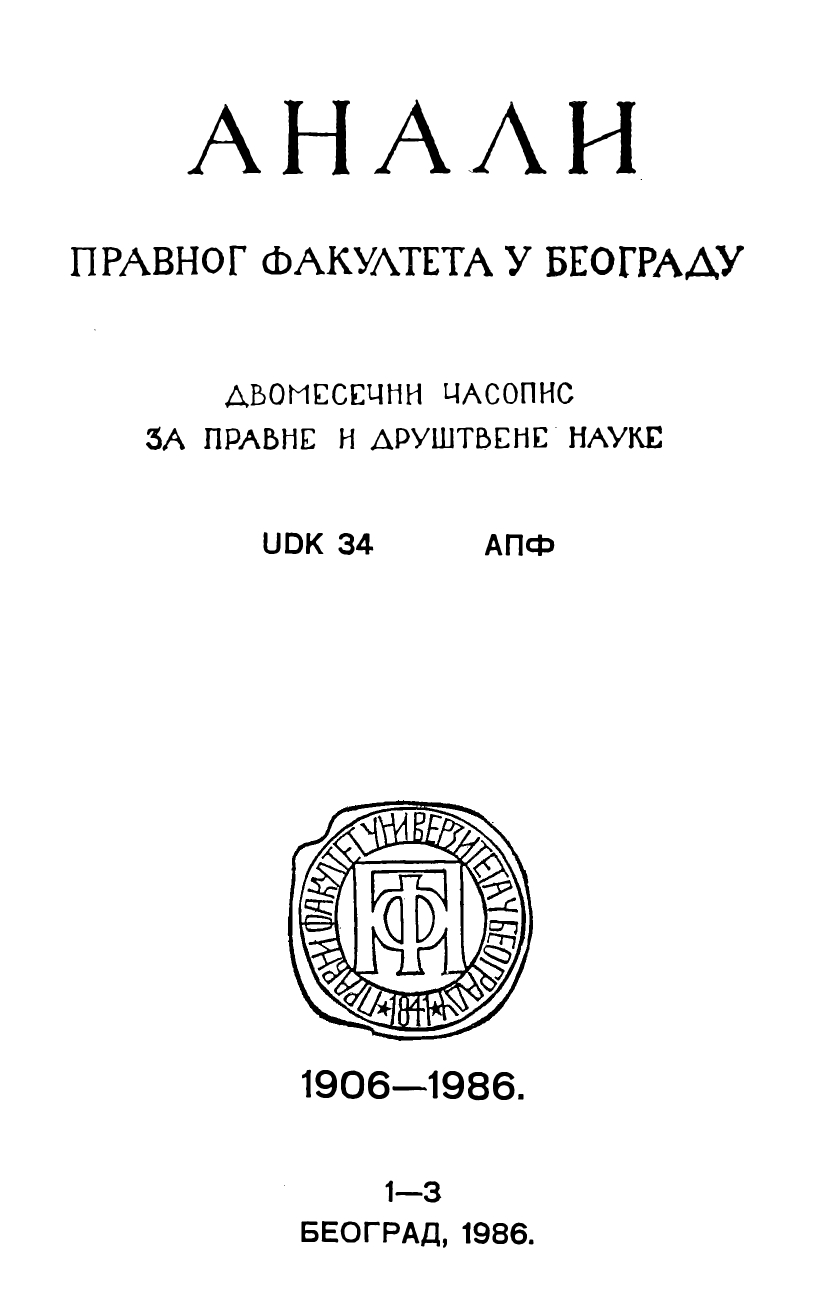РАЗЛИКЕ У САДРЖИНИ И ПРАВНОЈ ПРИРОДИ РИМСКОГ ТЕСТАМЕНТА И ТЗВ. ТЕСТАМЕНТАРНЕ АДОПЦИЈЕ СТАРОГ ГРЧКОГ ПРАВА
SUBSTANTIVE AND LEGAL NATURE DIFFERENCES BETWEEN THE ROMAN WILL AND THE SO-CALLED TESTAMENTARУ ADOPTION IN ANCIENT GREEK LAW
Author(s): Sima AvramovićSubject(s): Law, Constitution, Jurisprudence, History of Law, Roman law
Published by: Правни факултет Универзитета у Београду
Summary/Abstract: After emphasizing that the main characteristic of the institute of will in Roman law, since its inception and until Justinian, is that it has to contain the nominating of a successor, namely institutio heredis, as well as that, in terms of legal nature, it has the character of a revocable and unilateral act which is effective after death — the author analyzes relevant Greek sources, and more particularly the Gortyne Code and the speeches of Iseus and Demosthenes. He points out along these lines that, in the more distant past, the Greek law applied for purposes of disposing of property in case of death, the institute of adoption inter vivos, while since the fourth century B.C., the so-called testamentary adoption prevailed. Legal nature of these two institutes is then adequately elaborated in this article. The contents of the latter act, which is treated by the author as a sui generis one, is »an adoption for purposes of inheriting«, namely for putting a person into a legal position of the testator’s son, so that he may inherit as a legitimate heir, and not the nominating of a heir, namely, institutio heredis. This is a unique legal act by means of which the disposing of property is effected in case of death (diathesthai), but through adoption (poiesis), with an ex tunc effect, so that the conditions for its validity are equal to the ones provided for adoption. The author therefore considers that it is not possible to speak of Solon as a lawgiver who introduced the institute of will in Athens. The author even leaves open the issue whether he created the institute of the so-called testamentary adoption too. Since it does not contain the nominating of a successor, the author challenges also the adequacy of the very term (which, moreover, does not appear in the sources). Due to this essential difference, the Roman principle was not valid in the Greek law, according to which the subsequent will annuled the former one. And finally, the ethical standards of society were not always favouring such an act, while according to Roman law the bonus pater familias was only expected to make a will as a socially desirable act.
Journal: Анали Правног факултета у Београду
- Issue Year: 34/1986
- Issue No: 1-3
- Page Range: 3-13
- Page Count: 11
- Language: Serbian

